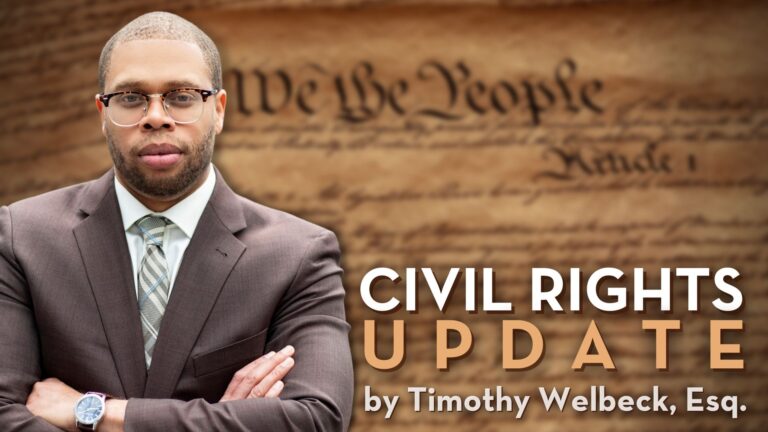Civil Rights Director Amara S. Chaudhry represented a CAIR-Philadelphia client in a trial-type adjudicatory hearing before a federal administrative judge on July 18th. At issue was whether our client is susceptible to “foreign influence” and therefore unworthy of the federal security clearance. Chaudhry served as sole legal counsel for our client throughout the proceeding before the U.S. Department of Hearings and Appeals in Arlington, Virginia. In a showing of solidarity and support, the proceeding was also attended by Outreach and Communications Director Rugiatu Conteh, our legal interns Farah Khan and Marjorie Gallagher, CAIR-National staff attorneys Gadeir Abbas and Munia Jabbar, and legal interns from CAIR-National.
This has been an important case which required team effort. Amara has been working as sole legal counsel for the client since the inception of this case. She has received non-legal assistance from Rugiatu in promoting this work. Additionally, Amara received additional litigation support from summer legal interns Marjorie and Farah who provided critical litigation support in the weeks and months before the hearing.
This case also marks the first instance where any CAIR attorney – anywhere in the country – has represented a client in a security clearance before the U.S. Department of Hearings and Appeals. It demonstrates the willingness of CAIR-Philadelphia to go to court to fight for the legal rights of American Muslims – with or without the assistance of outside counsel.
This is also important for the American Muslim community. There’s a danger that the federal guideline concerning “foreign influence” can be unfairly construed against Muslims and Jews who maintain contacts with persons and places in the Middle East and/or who visit the Middle East. Indeed, there are a number of federal court cases which have raised this concern.
CAIR-Philadelphia took this case to enforce the existing federal policies relating to “foreign influence” and to ensure that the federal government does not use legitimate concerns regarding national security to discriminate against law-abiding Muslims who pose no discernible threat to national security.




